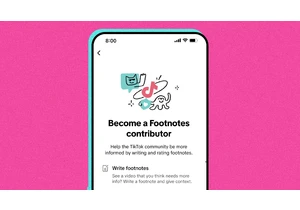TikTok and its Chinese parent company ByteDance said on Tuesday they filed suit in U.S. federal court seeking to block a law signed by President Joe Biden that would force the divestiture of the short video app used by 170 million Americans or ban its use.
The companies said they filed a lawsuit in the U.S. Court of Appeals for the District of Columbia arguing that the law violates the U.S. Constitution on a number of grounds, including running afoul of First Amendment free speech protections. The law, signed by Biden on April 24, gives China’s ByteDance until Jan. 19 to sell TikTok or face a ban.
TikTok made a copy of its lawsuit available to Reuters.
The lawsuit said the divestiture “is simply not possible: not commercially, not technologically, not legally. … There is no question: the Act (law) will force a shutdown of TikTok by January 19, 2025, silencing the 170 million Americans who use the platform to communicate in ways that cannot be replicated elsewhere.”
Driven by worries among U.S. lawmakers that China could access data on Americans or spy on them with the app, the measure was passed overwhelmingly in Congress just weeks after being introduced. The law prohibits app stores from offering TikTok and bars internet hosting services from supporting TikTok unless ByteDance divests TikTok by Jan. 19.
The suit also said the Chinese government “has made clear that it would not permit a divestment of the recommendation engine that is a key to the success of TikTok in the United States.”
It also said TikTok has spent $2 billion to implement measures to protect the data of U.S. users and made additional commitments in a 90-page draft National Security Agreement developed through negotiations with the Committee on Foreign Investment in the United States (CFIUS). That agreement included TikTok agreeing to a “shut-down option” that would give the U.S. government the authority to suspend TikTok in the United States if it violated some obligations,” according to the suit.
In August 2022, according to the lawsuit, CFIUS stopped engaging in meaningful discussions about the agreement and in March 2023 CFIUS “insisted that ByteDance would be required to divest the U.S. TikTok business.” CFIUS is an interagency committee, chaired by the U.S. Treasury Department, that reviews foreign investments in American businesses and real estate that implicate national security concerns.
Biden could extend the Jan. 19 deadline by three months if he determines ByteDance is making progress.
In 2020, then-President Donald Trump was blocked by the courts in his bid to ban TikTok and Chinese-owned WeChat, a unit of Tencent, in the United States. Trump, the Republican candidate challenging Democratic President Joe Biden in the Nov. 5 U.S. election, has since reversed course, saying he does not support a ban but that security concerns need to be addressed.
Many experts have questioned whether any potential buyer possesses the financial resources to buy TikTok and if China and U.S. government agencies would approve a sale.
To move the TikTok source code to the United States “would take years for an entirely new set of engineers to gain sufficient familiarity,” according to the lawsuit.
The four-year battle over TikTok is a significant front in the ongoing conflict over the internet and technology between the United States and China. In April, Apple said China had ordered it to remove Meta Platforms’ WhatsApp and Threads from its App Store in China over Chinese national security concerns.
—David Shepardson, Reuters
Autentifică-te pentru a adăuga comentarii
Alte posturi din acest grup

Tesla‘s electric-vehicle registrations in California dropped 15.1% during the first quarter, industry data showed, signaling an

TikTok is launching its own version of community notes on the platform, called “Footnotes.”
The crowd-sourced approach to moderation, where users add additional context to p
MrBeast has again defended his philanthropy‑as‑content, clapping back at critics who say he is “only in it for the views.”
On April 13, in a post on X, Jimmy Donaldson—better k

Meta CEO Mark Zuckerberg once considered separating Instagram from its parent company due to worries about antitrust litigation, a


If you’re planning to see the new Minecraft movie and haven’t heard of the viral “chicken jockey” trend w

For about 20 years, Docusign has been known as a tool for collecting digital signatures—helping businesses replace paper forms with electronic versions that are just as secure and legally binding.
